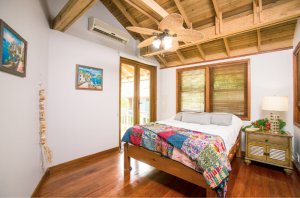By
Jenna Delport – April 14, 2021
As we reached the recent one-year anniversary of South Africans entering the first days of lockdown at the end of March 2020, we remembered how holidays at this time last year were universally cancelled because of fears of the COVID-19 virus. One year on, it is sombre to review the past 12 months, yet we are nonetheless able to start considering new opportunities for family holidays once again.

We have observed the increase in domestic travel towards the end of 2020, and with the implementation of Level One restrictions, people are feeling more comfortable about potentially taking a local break. As we approach the 2021 April school holiday season for state schools (which close on Friday 23 April and reopen on Monday 3 May), many of us are preparing for a short break.
Statistics have shown that domestic tourism is showing some signs of recovery, and we have noticed an upward trend late last year in both accommodation and flight patterns. This included an upward movement in Airbnb occupancy, with October 2020 occupancy at 59 percent of occupancies for the same time in 2019. This was also double the occupancy rate of Airbnb occupancy in September 2020, which was only at 30 percent.
I would suggest that guesthouses and Airbnbs are an important part of domestic tourism, and that for anyone in this sector, the signs of improvement are there. Additionally, of course, international travel opportunities continue to be more restricted than local possibilities, indicating that South Africans will still be more inclined to spend their holiday rands locally than overseas.
At the same time, costs remain a constraint for many of us, and managing costs is important for anyone in the guesthouse and Airbnb space. The installation of a prepaid electricity sub-meter can assist both landlords and holiday rental agents to work smarter – together.
A prepaid electricity sub-meter is a device that helps the user control and regulate the usage of electricity. It works much like a prepaid cellphone, whereby you pay upfront before you use it, therefore eliminating large unexpected monthly bills.
Here are some useful points to ponder:
Installing a prepaid electricity sub-meter will assist landlords and their property managers to work together in measuring and monitoring electricity consumption.
This helps to ensure that the short-term tenants don’t create headaches in the form of unforeseen bills, or disputes on utilities bills, in the event of an all-inclusive expenses stay.
This in turn enables landlords to learn more about their target market so that they are able to plan more effectively to meet their clients’ needs, including reasonable price-setting for the future.
The arena of prepaid electrical sub-meters is well-regulated and controlled, and there are certain recommended steps to be taken in acquiring and installing a prepaid electricity sub-meter.
Acquiring your meter: Recharger has a national presence through a number of outlets. Our prepaid electricity sub-meters are also conveniently and efficiently available via Takealot.
Installing and activating: A registered electrician must install the meter. Once the registration form is completed and sent to Recharger with the necessary documents, it will be processed and you will receive an SMS to notify you that your meter is activated.
Registering your meter: It is easy to register your Recharger prepaid sub-meter(s). The registration forms are included with each meter and you can use one form for multiple meters. Once completed, take a clear photo and send the completed registration form back to Recharger via WhatsApp, fax or e-mail.
Recharging: Use the unique number on each card that comes with your meter to buy prepaid electricity tokens from a variety of online and mobile vendors, retail stores, banks and petrol stations. You will receive a credit token with a 20-digit number. Simply enter the number on your meter keypad and press the red or blue button to recharge.
Purchasing prepaid electricity tokens: Recharger prepaid electricity tokens can be purchased countrywide from numerous retail outlets like Checkers, Spar, Dischem, Shoprite or Boxer stores. You can also get tokens at banks including FNB, Absa, Nedbank and Standard Bank, and petrol stations such as Shell, Sasol, Caltex, Engen and BP. Or you can buy tokens online from the Recharger Pay Portal or PayCity, as well as from mobile vendors using Flash and Kazang.
Taking all this into account, why not consider installing a prepaid electricity sub-meter for your holiday rental property in time for the April 2021 holiday season – and, of course, into the future? We believe it is a budgetary consideration that you will not regret.
Read the original ITNews Africa article here.

Leave A Comment